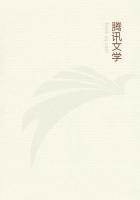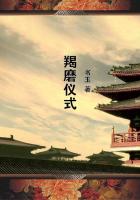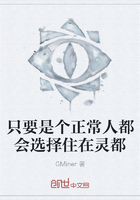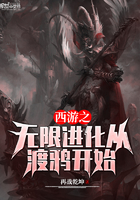This we undertook, and with great care were able to get through, to the astonishment of the Indians in the huts we had just passed, who now collected to see us from the top of the rock. The channel continued thus confined for the space of about half a mile, when the rock ceased.
We passed a single Indian hut at the foot of it, where the river again enlarges to the width of two hundred yards, and at the distance of a mile and a half stopped to view a very bad rapid; this is formed by two rocky islands which divide the channel, the lower and larger of which is in the middle of the river. The appearance of this place was so unpromising that we unloaded all the most valuable articles, such as guns, ammunition, our papers,. etc., and sent them by land, with all the men that could not swim, to the extremity of these rapids.
We then descended with the canoes, two at a time; though the canoes took in some water, we all went through safely; after which we made two miles, stopped in a deep bend of the river toward the right, and camped a little above a large village of twenty-one houses.
Here we landed; and as it was late before all the canoes joined us, we were obliged to remain this evening, the difficulties of the navigation having permitted us to make only six miles."
They were then among the Echeloots, a tribe of the Upper Chinooks, now nearly extinct. The white men were much interested in the houses of these people, which, their journal set forth, were "the first wooden buildings seen since leaving the Illinois country."
This is the manner of their construction:--"A large hole, twenty feet wide and thirty in length, was dug to the depth of six feet; the sides of which were lined with split pieces of timber rising just above the surface of the ground, and smoothed to the same width by burning, or by being shaved with small iron axes. These timbers were secured in their erect position by a pole stretched along the side of the building near the eaves, and supported on a strong post fixed at each corner.
The timbers at the gable ends rose gradually higher, the middle pieces being the broadest. At the top of these was a sort of semicircle, made to receive a ridge-pole the whole length of the house, propped by an additional post in the middle, and forming the top of the roof.
From this ridge-pole to the eaves of the house were placed a number of small poles or rafters, secured at each end by fibres of the cedar.
On these poles, which were connected by small transverse bars of wood, was laid a covering of white cedar, or arbor vitae, kept on by strands of cedar fibres; but a small space along the whole length of the ridge-pole was left uncovered, for the purpose of light, and of permitting the smoke to pass out. The roof, thus formed, had a descent about equal to that common among us, and near the eaves it was perforated with a number of small holes, made, most probably, for the discharge of arrows in case of an attack. The only entrance was by a small door at the gable end, cut out of the middle piece of timber, twenty-nine and a half inches high, fourteen inches broad, and reaching only eighteen inches above the earth. Before this hole is hung a mat; on pushing it aside and crawling through, the descent is by a small wooden ladder, made in the form of those used among us.
One-half of the inside is used as a place of deposit for dried fish, of which large quantities are stored away, and with a few baskets of berries form the only family provisions; the other half, adjoining the door, remains for the accommodation of the family.
On each side are arranged near the walls small beds of mats placed on little scaffolds or bedsteads, raised from eighteen inches to three feet from the ground; and in the middle of the vacant space is the fire, or sometimes two or three fires, when, as is usually the case, the house contains three families."
Houses very like these are built by the Ahts or Nootkas, a tribe of Indians inhabiting parts of Vancouver Island and the adjacent mainland.
A Nootka calls his house an ourt.
The good offices of Lewis and Clark, who were always ready to make peace between hostile tribes, were again successful here.
The Echeloots received the white men with much kindness, invited them to their houses, and returned their visits after the explorers had camped.
Lewis and Clark told the Echeloot chiefs that the war was destroying them and their industries, bringing want and privation upon them.
The Indians listened with attention to what was said, and after some talk they agreed to make peace with their ancient enemies.
Impressed with the sincerity of this agreement, the captains of the expedition invested the principal chief with a medal and some small articles of clothing. The two faithful chiefs who had accompanied the white men from the headwaters of the streams now bade farewell to their friends and allies, the explorers.
They bought horses of the Echeloots and returned to their distant homes by land.
Game here became more abundant, and on the twenty-sixth of October the journal records the fact that they received from the Indians a present of deer-meat, and on that day their hunters found plenty of tracks of elk and deer in the mountains, and they brought in five deer, four very large gray squirrels, and a grouse.
Besides these delicacies, one of the men killed in the river a salmon-trout which was fried in bear's oil and, according to the journal, "furnished a dish of a very delightful flavor," doubtless a pleasing change from the diet of dog's flesh with which they had so recently been regaled.
Two of the Echeloot chiefs remained with the white men to guide them on their way down the river. These were joined by seven others of their tribe, to whom the explorers were kind and attentive.
But the visitors could not resist the temptation to pilfer from the goods exposed to dry in the sun. Being checked in this sly business, they became ill-humored and returned, angry, down the river.

